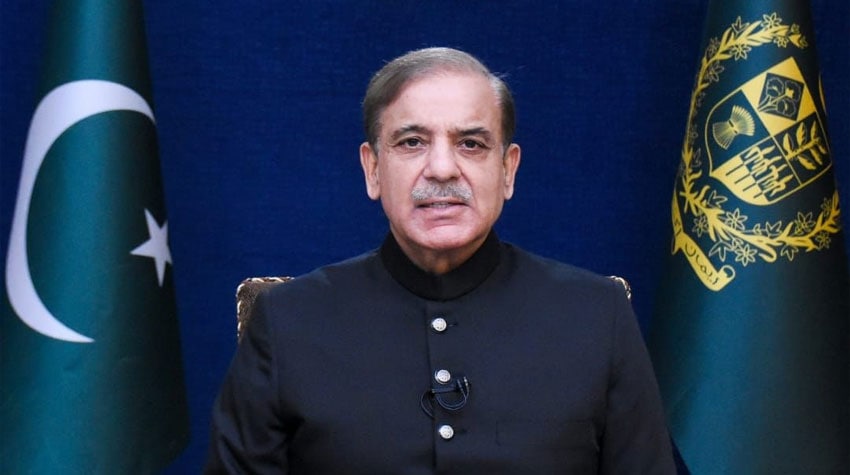Prime Minister Muhammad Shehbaz Sharif says the country can only be transformed into a welfare state on the pattern of Riyasat-e-Madina by following the teachings of Seerah of the Holy Prophet, Hazrat Muhammad Rasool Allah Khatam un Nabiyeen Sallallah-o-Alaihe Wa Aalehe Wassallum. Addressing a Seerat-un-Nabi conference in Lahore on Sunday, Shehbaz Sharif said Pakistan was achieved after great sacrifices and stressed upon rejuvenating the spirit of ‘faith, unity and discipline’ to steer the country out of the present-day challenges.
He observed that a welfare governance system could only be achieved under the Quranic teachings and principles of Seerah (PBUH). The Prime Minister said the Holy Prophet (Peace Be Upon Him) came to this world at a time when the Arab society was witnessing inhuman rites and rituals, committing sin and crime were considered as a sign of bravery. He said Holy Prophet (PBUH) was a blessing for the entire humanity and guiding light for those segments of society that had been lying low.
Prior to his prophethood, the Prime Minister said the Holy Prophet (PBUH) was entitled as ‘Sadiq and Amin’, due to the qualities of his character. He was an embodiment of love, affection, kindness and virtue. The Prophet (PBUH) used to forgive even the worst enemies. Prime Minister said Holy Prophet (PBUH) overcame all the hurdles and problems that were created in the path of righteousness, but never uttered words against his bloodthirsty enemies. The Prime Minister said the Holy Prophet (PBUH) established a real welfare state with a united charter in which the rights of the non-Muslims were protected.
He said the two treaties proved as historic milestone in the history of mankind, including Meesaq-e-Madina and Sulah-e- Hudaybiyyah. Besides, others, religious freedom was ensured for all. The Prime Minister said that in Riyasat-e-Madina, the orphans, widows and destitute persons were looked after and no one slept with empty stomach. Shehbaz Sharif said state of Madina had ended the economic woes of the people and there was a time when no one was left in Madina to get Zakat due to economic prosperity.










